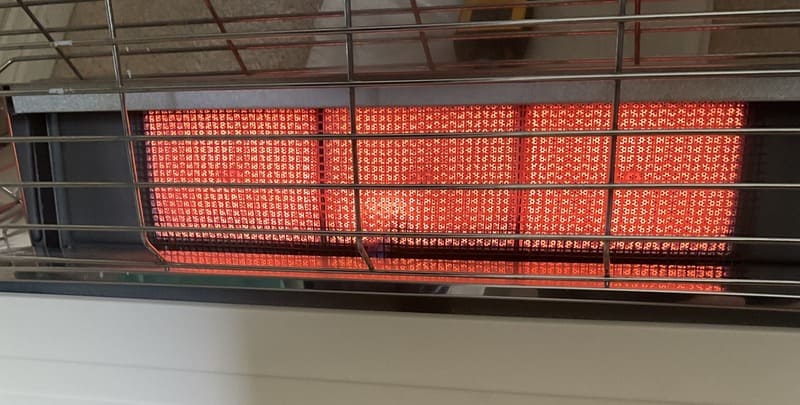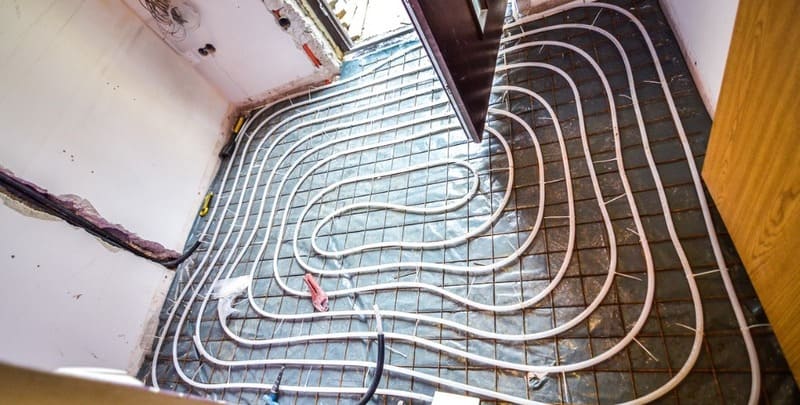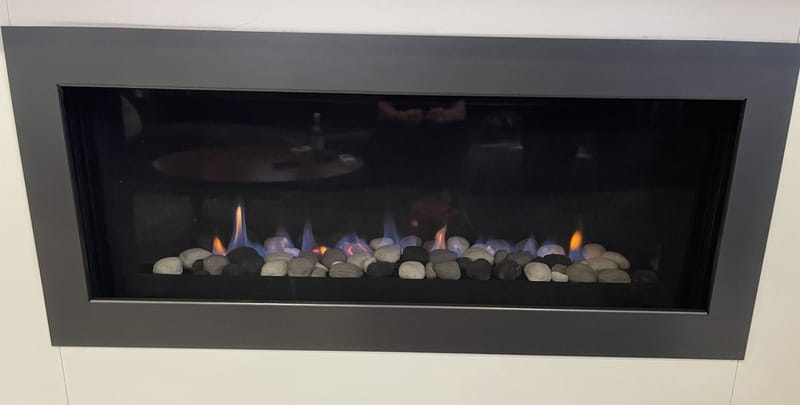
Different Types of Heaters and How to Choose the Right One
Choosing the right heater for your home is crucial for maintaining comfort and efficiency during the cooler months. With various options available, it’s essential to understand the differences and benefits of each type to make an informed decision.
In this article, we will explore the different types of heaters suitable for Australian homes and guide you in selecting the most appropriate one for your needs.
Whether you are looking to effectively heat a small room or your entire home, this guide will help you navigate the key considerations to ensure warmth and comfort throughout the year.
The Importance of Choosing the Right Heater
Selecting the appropriate heater for your home is vital for ensuring both comfort and safety. A well-chosen heater can produce heat consistently, reduce cold spots, and maintain a pleasant indoor environment during the cooler months.
This is especially important in areas where temperature regularly fluctuates from cold air to hot air, where reliable heating can significantly enhance your quality of life.
Energy efficiency is another critical factor to consider when choosing a heater. An efficient heating system can lower your energy consumption and reduce your energy bill, making it a cost-effective solution in the long run. Opting for an energy-efficient heater also helps minimise your environmental footprint, contributing to more sustainable living practices.
Furthermore, the right heater can improve the overall safety of your home. Modern heaters come equipped with various safety features, such as overheating protection and automatic shut-off, which can prevent accidents and ensure safe operation. By investing in a suitable heating solution, you can enjoy peace of mind knowing your home is both warm and secure.

Types of Heaters to Consider
When it comes to choosing the right heater for your space, it’s important to understand the different types available. Here’s a quick rundown:
- Convection heaters: These work by warming the air that circulates around the room. They’re ideal for heating entire rooms evenly and can come with or without fans.
- Radiant heaters: Radiant heaters provide immediate warmth, targeting specific areas or people. They are perfect for when you need a quick heat up without having to warm the entire room.
- Hydronic heating: Hydronic heating is a form of radiant heating, which involves circulating hot water through a system of pipes installed under the floor (see picture below), along baseboard heaters or through radiators.
- Oil-filled heaters: These are a type of convection heater but are known for retaining heat longer. They operate quietly and can keep your room warm for hours after they’re turned off.
- Ceramic heaters: These are lightweight, portable heaters that are great for small to medium-sized rooms. They heat up quickly and are generally energy efficient.
- Infrared heaters: Similar to radiant heaters, infrared models deliver heat directly to objects and people rather than the air around them. They are extremely efficient and effective for both indoor and outdoor spaces.
- Reverse cycle air conditioners: Reverse cycle air conditioners offer the dual benefits of heating and cooling, making them versatile for year-round use. These split systems are highly efficient convection heaters, using refrigerant and a fan to pump out the warmed air and maintain a consistent temperature.
Choosing the right heater depends on your specific needs like room size, energy efficiency, and whether you prefer direct or ambient heat. Each type has its benefits, so consider what’s most important for your comfort and your space.
What Power Source Are You Using?
Choosing the right heater isn’t just about the type; it’s also crucial to consider the power source that suits your setup best. Here’s what you need to know about the different power sources for heaters:
- Electricity: Most heaters (such as reverse cycle air conditioners) run on electricity because of its wide availability. Electric heaters are convenient and often portable, making them ideal for most residential settings. They can range from small personal heaters to larger, room-sized units (such as window air conditioners).
- Natural Gas: Gas heaters can be incredibly efficient and cost-effective, especially in areas where natural gas is cheaper than electricity. They’re typically used for central heating or large space heating. Remember, they require proper ventilation to prevent issues with gas leaks and carbon monoxide leaks (see below). Types of gas heaters can be ducted systems, wall furnaces and gas log fireplaces.
- Liquefied petroleum gas (LPG): For areas without natural gas service, LPG heaters are a common alternative. They are great for both indoor and outdoor use and vary in size from small portable units to larger models designed to heat bigger spaces.
- Kerosene: Although less common, kerosene heaters are powerful and suitable for outdoor use or well-ventilated areas due to their strong odour and emissions.
- Wood: Traditional fireplaces and combustion heaters still use wood for fuel and can’t be beat for winter ambience. However, there is the inconvenience of carrying, chopping and burning wood, along with cleaning up the ashes.
Your choice of power source will depend on factors like availability, cost, and safety requirements. Each power source has its advantages and limitations, so it’s important to match your heater to your specific needs and circumstances.

Factors to Consider When Choosing a Heater
What are the major factors you should consider when choosing an appropriate heater for your home? Let’s take a closer look at how to select the right method for your household:
Room Size and Layout
When selecting a heater, the size and layout of the room are crucial factors. A heater that is too small will struggle to warm a large room effectively, while an oversized heater may consume more energy than needed to heat a small space. Start by measuring the dimensions of the entire room and considering the ceiling height. Large spaces may require more powerful heaters or multiple units to ensure even heat distribution.
Heat distribution is also influenced by the layout of the whole room. In living rooms, furniture placement and the presence of obstacles can affect airflow and the heater’s efficiency. In larger rooms, positioning the heater in a central location, away from obstructions, can help maximise its effectiveness.
Climate and Weather Conditions
The local climate and weather patterns significantly impact your heating needs. In areas with mild winters, a smaller, less powerful heater might suffice, whereas regions with harsher winters will require more robust heating solutions. Understanding your local climate can help you choose a heater that can cope with the lowest expected temperatures.
Insulation plays a key role in how well your home retains heat. Homes with good insulation will stay warmer for longer, reducing the demand on your heater and acting as a more energy-efficient option. Assess your home’s insulation and make improvements where necessary to complement your heating system.
Energy Efficiency and Running Costs
Energy efficiency is a critical consideration for both environmental and financial reasons. Look for heaters with high energy star ratings, as they consume less power to generate heat at the same rate. This not only helps reduce your energy bills but also lowers your carbon footprint.
Running costs vary between heater types and fuel sources. Electric heaters might have higher operational costs compared to gas heaters, depending on local energy prices. Calculate the long-term costs of different heating options to determine the most cost-effective solution for your home.
Safety Features
Safety should never be overlooked when choosing a heater. Modern heaters come with various safety features designed to prevent accidents and ensure safe operation. Overheat protection is a common feature that automatically shuts off the heater if it gets too hot, preventing fire hazards.
Child safety locks are another important feature, especially for families with young children. These locks prevent children from tampering with the heater’s settings, reducing the risk of accidental burns or other injuries. Always prioritise heaters with robust safety features to protect your household.
You should also be aware that, while gas heating is regarded as safe, it has been associated with gas leaks and carbon monoxide leaks. Adequate safety measures should be taken to measure their emissions.
By carefully evaluating these factors, you can select a heater that meets your specific needs and preferences, ensuring a warm and comfortable home throughout the colder months.

Finding the Right Heating Solution
Choosing the right heater for your home involves considering various factors such as room size, local climate, energy efficiency and safety features. By understanding the different types of heaters available and their respective benefits, you can make an informed decision that ensures comfort and cost-effectiveness.
Remember to prioritise energy-efficient models and those with robust safety features to protect your household. With the right heater, you can enjoy a warm, cosy home during the colder months, enhancing your overall living experience. Make sure to evaluate your specific needs and preferences to find the perfect heating solution for your home.
Please note: This information is provided for advice purposes only. Regulations differ from state to state, so please consult your local authorities or an industry professional before proceeding with any work. See Cyber Air Conditioning’s Terms & Conditions here.
